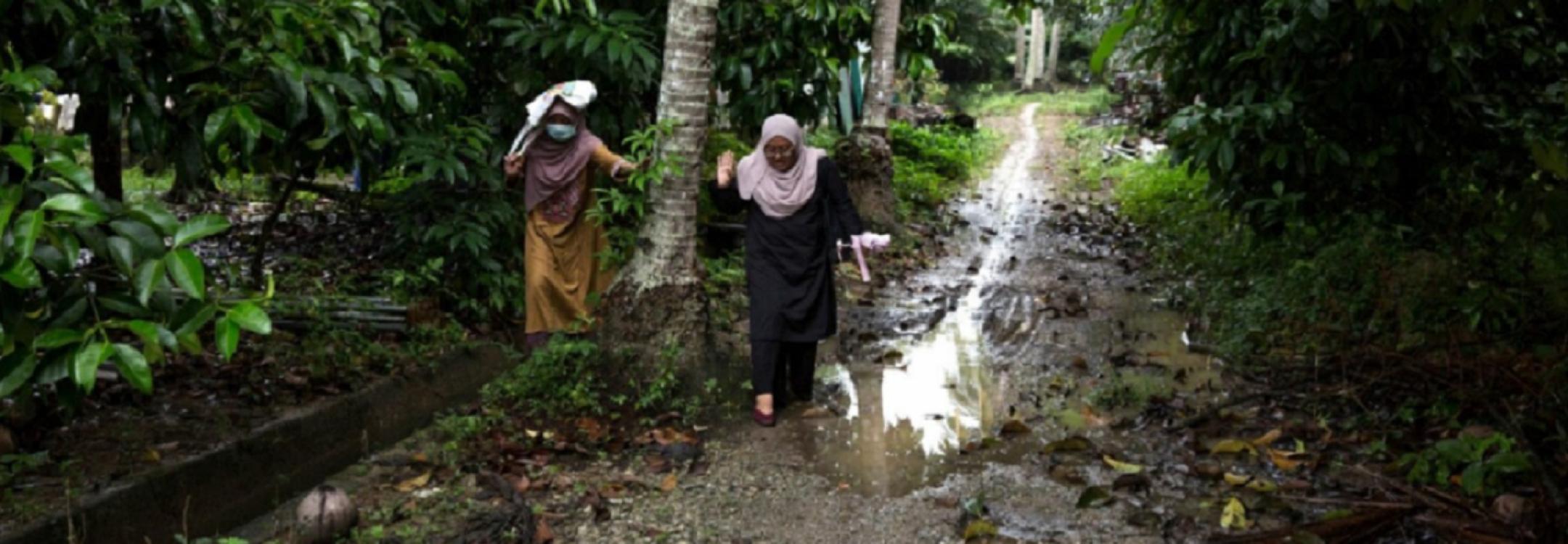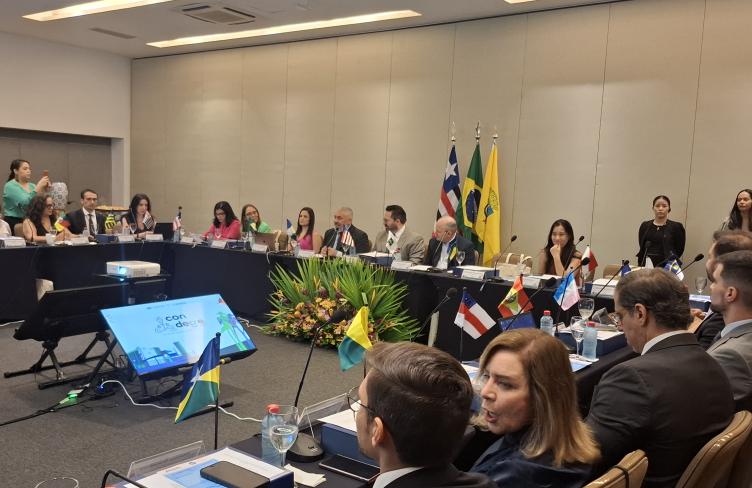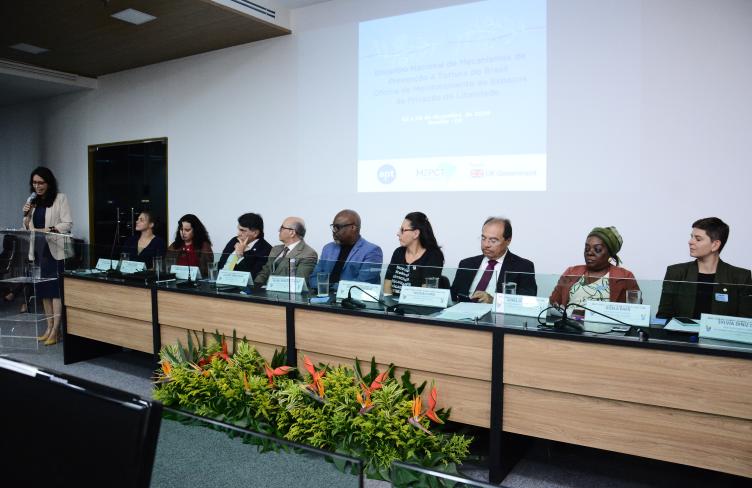
Around 250 participants joined a global webinar organised by the APT to present lessons learned from torture prevention projects implemented in Thailand, Madagascar and Brazil.
The three-year projects, undertaken with partners in each country, focused on ways to strengthen the implementation of detention safeguards during the first hours of custody, when the risks of torture and ill-treatment are highest.
As the keynote presenters explained in the webinar, upholding these safeguards – for example, providing a detainee with information about their rights on arrest, notifying their family, ensuring access to a lawyer and presenting them before a judge for a custody hearing – are crucial for preventing torture and ill-treatment.
Madagascar
Aina Randriambelo, Chief Police Commissioner and Chief of Staff of the Minister of Internal Security of Madagascar, described the new tools and procedures for police custody developed by the APT and the National Police: a standard register and a letter of rights.
These tools have been piloted in selected police stations and will soon be rolled-out across the country. In order to accompany this process, the APT, in collaboration with the Ministry, has produced a guide and an e-learning module, delivered via text message.
Presenting an honest assessment of the project, Ms Randriambelo explained that, at first, many police officers were reluctant to accept the proposed changes. In fact, they did not see a need to change their way of working and did not see a role to prevent torture.
However, she noted that these new tools and procedures have contributed to a paradigm shift in perceptions: from thinking of the police as a repressive force, to seeing the police as an institution for the protection and defence of human rights in the country.
Ms Randriambelo said the project has played a key role in developing a relationship of trust between the Madagascan population and the police service. It had also lowered the risks of corruption, as police officers no longer expect extra payment in exchange for a call to a family member or providing other safeguards.
Thailand
Pornpen Khongchakongkiet, Executive Director of the Cross Cultural Foundation, described how the project with the APT provided a safe and collaborative platform for civil society organisations in Bangkok and Patani, as well as national government agencies such as the Ministry of Justice, to coordinate and complement their efforts.
The challenging political climate in Thailand did not deter her or others from continuing their work, she noted. Instead, it was an opportunity to rethink their approach for ensuring the rights of persons under police custody were protected.
“We use creative strategies and involve artists and photographers in our efforts to empower the public to know their rights,” Ms Khongchakongkiet said.
This is important because the two key safeguards – notification of family members and information about rights – require the community to understand, exercise and potentially support others to exercise these rights.
Ms Khongchakongkiet also described notification of families is a form of “community oversight” as it enables community members to monitor first-hand the situation of persons under police custody and potentially to support them secure associated rights, such as access to a lawyer.
This community support is crucial, particularly in the Deep South, where martial law operates and criminal suspects can be arrested and detained by the military.
Brazil
Judge Mário Guerreiro, a member of Brazil’s National Council of Justice, described the important role that custody hearings – where a person is brought before a judge within 24 hours of their arrest – play in the fight against torture.
Operating in Brazil since 2015, he said custody hearings provide a magistrate with the opportunity to identify instances of torture or violence against the arrested person and then establish an investigation into the allegations.
However, Justice Guerreiro noted that various studies indicated that torture and ill-treatment continues to be underreported by detainees, a situation compounded in the past year when custody hearings have, at different times, been held by videoconference in response to the COVID-19 pandemic.
Noting the support provided by APT, he said that judges have a responsibility to reduce the barriers to reporting.
“First, the courts must provide adequate conditions for a safe and attentive environment for the person under custody to make to their report. Second, judges should be firm, vigilant and not tolerate any form of institutional violence,” Justice Guerreiro said.
A video recording of the webinar, held on 24 February 2021, is available online.
The APT is grateful for the support provided by the Canton of Geneva for each of these projects.
To celebrate what was achieved through the projects, the APT has launched a virtual photo exhibition to document these distinctive journeys to prevention.


